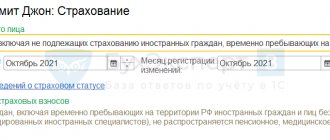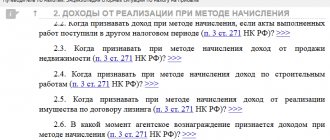- October 22, 2018
- Terms
- Ekaterina Ryzhkova
Who is a resident and non-resident? What is the difference? You will find answers to these and other questions in the article. These concepts are very relevant in many financial areas, for example, in banking services, when paying taxes, registering an inheritance, withdrawing funds abroad and in other cases. Therefore, it is very important to clearly understand who a resident and a non-resident are and how they differ.
Common mistake
Typically, an ordinary person, far from monetary issues, hearing the concepts of “non-residents” and “residents”, believes that the former are foreigners, and the latter are citizens of the country. So, this is a serious mistake!
In reality, the concept of residence has a specific connection with the concept of citizenship, but there are also significant differences. That is, a non-resident is not necessarily a foreigner, and a resident is not always a citizen of the country.
These definitions are given in the legislative acts of each power, and may have established differences for different countries. In Russia, for example, these concepts differ even within the country. Thus, during the execution of currency supervision, some epithets apply, and during tax verification, others apply. These definitions can be transformed by making appropriate changes in the legislative framework. Therefore, to be sure, it is always necessary to read the laws with the final modifications made.
Who is a resident?
Few people know who a resident and a non-resident are. The first concept is interpreted as follows:
- This is an individual who has continuous registration of the country, and also continuously resides in it, in relation to the canons of the Russian Federation, for 183 days of the final 12 months. Either it is a legal entity, an organization that is not a legal entity, a diplomatic or other official representation created in accordance with the canons of the Russian Federation, located on its lands or abroad.
- A resident is also called a legal or natural person who permanently resides or is registered in a given country. An individual is a resident of a country if he lives in it for more than 6 months in a given tax year, owns the “center of his business and vital interests” there, or satisfies another criterion specified by the internal laws of that region. For legal entities, this status is usually assigned based on the place of their registration, education, location of the “control center,” and other similar criteria.
- This is the name given to an individual or legal entity registered in the country, which is fully subject to national laws.
- A resident is also a citizen of some other country who permanently resides in that state.
- These are also persons permanently residing in the Russian Federation on the basis of a residence permit provided for by the canons of the Russian Federation, stateless persons and foreign citizens.
- And these are also individuals, taxpayers, who actually stay in the Russian Federation for at least 183 days within the final 12 months.
- In some states, residents are foreigners and overseas organizations that have full responsibilities and rights within their country of residence.
- These are individuals who have a stable place of residence in the Russian Federation, including those temporarily staying outside the Russian Federation.
- These are also legal entities created in accordance with the canons of the Russian Federation, as well as their representative offices and branches, but located outside the borders of the Russian Federation.
- In addition, these are organizations that are not legal entities, founded in accordance with the canons of the Russian Federation, diplomatic or other missions located outside the borders of the Russian Federation, their representative offices and branches.
Change of tax resident status
An individual has 1 year to change status. Each time an employee receives payment for work, it is necessary to clarify his status. This is required in order not to withhold excess tax from the citizen. To do this, every month at the time of salary calculation, you should check how long the employee spent in Russia over the course of 12 months.
At the same time, at the end of the calendar year, it is necessary to once again clarify the status of a citizen. If the need arises, it is worth recalculating personal income tax for 12 months. If an individual receives resident status, he has the right to a refund of the overpaid personal income tax amount that has accumulated for the current year since January 1. The employer's responsibilities include recalculating personal income tax, taking into account the rate of 13% from the beginning of the year and taking into account the overpaid amount of tax.
If, after 12 months, it is not possible to transfer the entire overpaid amount, the employee has the right to submit an application to the tax office so that they can carry out a recalculation and, as a result, return the overpaid funds. The employee will need a 2-NDFL certificate, a residence document, and a declaration.
If a citizen has lost his resident status during the year, from January 1 of the current year, personal income tax will be recalculated at a rate of 30%, without providing tax deductions. When salaries are calculated, in addition to taxes, the amount owed since January 1 of the current year must be withheld, which cannot exceed 50% of the salary. If the year has already ended, you must provide a 2-NDFL certificate to the Federal Tax Service (30% rate). To avoid this lengthy debt repayment process, you can try to negotiate with the employee that he will contribute cash that will be used to pay off the tax debt.
Meaning of the word
The word "resident" is a borrowed word. Its first part (the prefix re-), translated from Latin, means “again, go back, once again.” The second segment of the word sedere is interpreted as “to seat, to seat.” As a result, the word “resident” means: “one who is in place, sits incessantly.”
The same name is given to the commissioner of secret intelligence, the head of the entire intelligence network. This value of the word took root in people’s minds after watching the films “The Resident’s Fate” and “The Resident’s Mistake.” In other words, this is a senior spy.
Who is a non-resident?
So who is a non-resident? Explanations about the resident are presented above. So, non-resident:
- This is a legal entity or organization that does not have the status of a legal entity, created according to the laws of a foreign power, or diplomatic missions of foreign powers or other official organizations located on the lands of the Russian Federation. Or this is an individual who lives outside the borders of the Russian Federation for more than 183 days during the final 12 months, that is, who does not have a permanent location in this region.
- Also, a non-resident is a legal entity (or individual) that is not a resident of a given country, and therefore is obliged to pay taxes only on profits received from sources in that country.
- It is also an individual or legal entity operating in one country, but permanently residing and registered in another.
- This is also the name given to a person who has permanent residence outside his country.
- A non-resident is a company or organization that is not a legal entity, created in accordance with the canons of foreign powers, or diplomatic foreign and other official representations located in the country, as well as international organizations, their representative offices and branches.
- Also, these are legal entities and individuals who do not have a permanent location in a given country for the purposes of currency, tax or other laws.
- This is the name given to individuals who do not meet the requirements of the concept of “residents”.
How to calculate 183 days
The number of days an employee stays in the Russian Federation is determined by summing up all calendar days in which he was in Russia during this period. When calculating them, days are taken into account - calendar dates of entry and exit, since on these days the person is actually on the territory of Russia.
183 days should not flow continuously (letter of the Federal Tax Service of Russia dated August 30, 2012 No. OA-3-13 / [email protected] ). They may be interrupted for periods of vacations, business trips, etc.
When calculating 183 days of stay in Russia, the time spent abroad is not included in their number, except for short-term (less than six months) trips for treatment and training - they are included. Mandatory condition: immediately after completing training or treatment, the employee must return to the Russian Federation.
But if, under an agreement with a foreign educational institution, training lasts more than six months, when calculating the days a person is in Russia, the entire period of his training is not taken into account (letter of the Ministry of Finance of Russia dated October 8, 2012 No. 03-04-05/6-1155).
All days when a person was treated abroad or underwent training must be documented: copies of passports with border control marks, contracts with medical or educational organizations or certificates from them. The certificates must indicate the time of treatment or training.
An important condition for periods of short-term treatment or training to be counted during a person’s stay in the Russian Federation is the purpose of the trip. If he traveled abroad for another purpose, but while abroad underwent treatment or training, these days cannot be included in the period confirming residence (letter of the Ministry of Finance of Russia dated September 26, 2012 No. 03-04-05/6- 1128).
Representatives
Having studied all the legislation and literature, the following subjects can be considered residents:
- Foreigners living in the Russian Federation with a residence permit.
- Individuals who have a permanent place of residence in the Russian Federation, including those temporarily staying outside the Russian Federation.
- Legal entities created in accordance with the canons of the Russian Federation, located in the Russian Federation.
- Organizations and enterprises that are not legal entities, established in accordance with the laws of the Russian Federation, located in the Russian Federation.
- Representative offices and branches of residents located outside the Russian Federation.
- Diplomatic and other official missions of the Russian Federation located outside the Russian Federation.
How do tax statuses differ in the Russian Federation?
Tax residence status determines the country in which a legal entity will pay taxes on all of its income and the tax rules, which differ between residents and non-residents.
Considering what is the difference between a resident legal entity and a non-resident, the main thing should be pointed out: non-residents in the Russian Federation pay taxes only for those incomes that are received from business activities in Russia, while everything that they earn outside the Russian state is taxed not taxable. Residents of the Russian Federation declare all their income and pay taxes on it to the Russian treasury.
Is it possible to determine residency by bank account number?
A legal entity that operates on the territory of the Russian Federation is required to have at least one personal bank account. Non-resident legal entities, as well as residents, have the right to open foreign currency and ruble accounts in banks that have received permission for this from the Central Bank of the Russian Federation (Article 13 of the Law of December 10, 2003 No. 173-FZ “On Currency Regulation and Currency Control” ").
Bank accounts differ in their ownership (Bank of Russia Regulation No. 579-P dated February 27, 2017) and contain the attribute of a resident or non-resident company. Using the bank account number (consists of 20 digits), it is possible to determine the residence of a legal entity.
Chapter “A” of Regulation No. 579-P clearly defines that the current accounts of non-resident legal entities begin with the numbers:
- 40804 (ruble account type “T”);
- 40805 (ruble account type “I”);
- 40806 (conversion account “C”);
- 40807 (non-resident account);
- 40809 (investment account);
- 40812 (project account);
- 40814 (convertible account “K”);
- 40815 (non-convertible account “H”);
- 40818 (currency account).
In these numbers, the numbers after register 408 indicate the type of person and account. All other numbers indicate resident legal entities.
Thus, knowing the bank number of an organization, you can determine its residence with 100% accuracy.
Is it possible to determine residence by TIN
A taxpayer identification number (more often called TIN) is required for all business entities in the Russian Federation. It consists of ten numbers:
- 4 digits – place of registration: the first 2 are the code of the subject of the Russian Federation, the other 2 are the code of the local tax authorities;
- 5 digits – the so-called OGRN or main state registration number;
- 1 check digit.
Using the TIN code, you can easily identify a foreign organization or company - from 01/01/2015, the individual number of such organizations begins with “9909” (Interregional Inspectorate of the Federal Tax Service), followed by 5 digits of the code of the foreign organization and at the end a check digit.
Determining residence by TIN number is difficult and easy to make a mistake. Thus, a company with a foreign code may turn out to be a resident of the Russian Federation. Therefore, the data must be additionally checked using other sources.
Will CAT help determine tax status?
KPP is an additional nine-digit code that legal entities receive from the tax office when registering. This applies to both residents and non-residents of the Russian Federation. Its main purpose is to show the reason why this organization was registered with a certain tax office. A legal entity may have several such checkpoints and they may change over time: for example, when changing the address.
The first two digits of the checkpoint represent the region of the Russian Federation, the third and fourth are the tax office number. The following two indicate why the organization was registered:
- 01 – at the location of the central authority;
- 02–05, 31 and 32 – at the location of the organization’s division (this may be a representative office or branch of a foreign company);
- 06–08 – on finding real estate. Foreign organizations are designated by numbers from 51 to 99.
- The last digits are the serial account number (for the specified reason).
Information about the residence of a legal entity is not contained in the checkpoint.
How to find out the residence of a legal entity on the website of the Federal Tax Service of the Russian Federation
The easiest and fastest way to get the necessary information about residency is to visit the website of the Federal Tax Service of the Russian Federation. The algorithm of actions is simple:
- you need to set the search parameters - TIN, checkpoint or address;
- Enter your favorite parameter into the search bar and get information that can be downloaded as a PDF file.
Another variant:
- go on the website;
- select “Business risks: check yourself and your counterparty” in the electronic services;
- select “legal entity” and specify in the search criteria – TIN, OGRN or name of the organization.
After the initial information has been entered into the search field, you should enter the captcha and click “Find”. After this, you will be able to get acquainted with detailed information about the desired legal entity, including its residence in the Russian Federation.
Rights of representatives
The rights of residents of the Russian Federation are secured by Articles 14 and 24 of the Federal Law “On Currency Control and Currency Regulation”. These include:
- Opening without restrictions in authorized banks of accounts (deposits) in foreign currency.
- Legal entities have the right to make payments through their own accounts opened in banks outside the Russian Federation.
- Legal entities can make settlements with non-resident individuals without using accounts in real money of the Russian Federation under contracts for the individual purchase and sale of products, as well as when providing these individuals with hotel, transport and other services provided to the population on the lands of the Russian Federation.
- Legal entities can settle accounts with non-resident citizens without using accounts in foreign cash currency and Russian Federation money for servicing aircraft of overseas states at airports, foreign ships in sea and river ports, as well as when non-residents pay airport, air navigation and port dues on the lands of the Russian Federation.
- Also, legal entities can make, without using accounts in accredited banks, settlements in foreign cash currency and Russian Federation money with non-residents for servicing the aircraft of such legal entities in air hubs of foreign countries, ships of such legal entities in overseas sea and river ports, and other transport of such legal entities while they are on the lands other countries, as well as when such legal entities pay airport, air navigation, port duties and other immutable fees on the lands of foreign countries related to the operation of such legal entities.
- Legal entities can make payments in foreign currency and the currency of the Russian Federation without the use of bank accounts with resident individuals staying outside the Russian Federation, as well as branches, residences and other divisions of legal entities created in accordance with the canons of the Russian Federation, and non-resident individuals under contracts for the transportation of travelers, as well as settlements in foreign currency and money of the Russian Federation with resident (non-resident) individuals located outside the lands of the Russian Federation under agreements for the transportation of goods transported by individuals for family, private, household and other needs not related to the execution of business activities.
- Consular offices, diplomatic missions of the Russian Federation and other official representative offices of the Russian Federation located outside the Russian Federation, as well as permanent representative offices of the Russian Federation at intergovernmental or interstate organizations can make payments in real currency with employees of representative offices without using bank accounts.
- Resident legal entities of the Russian Federation can, without the use of bank accounts, make payments in foreign cash currency with non-resident individuals staying outside the Russian Federation to pay salaries to employees of consular offices, diplomatic missions of the Russian Federation and other official representative offices of the Russian Federation located outside the borders of the Russian Federation, as well as permanent missions of the Russian Federation at intergovernmental and interstate organizations, for the payment of wages to employees of the representative office of a resident legal entity located outside the lands of the Russian Federation, for the payment or reimbursement of costs associated with the sending of employees to the lands of the country where institutions, representative offices and organizations are located and beyond its borders, with the exception of the zone of the Russian Federation.
- Making payments through personal bank accounts in any foreign currency with (if necessary) a conversion transaction at the rate agreed upon with an accredited bank, regardless of the foreign currency in which the account was opened.
- The right to familiarize yourself with inspection reports performed by agents and currency audit authorities.
- The right to appeal actions (inaction) and decisions of agents and currency control authorities in the manner prescribed by law.
- The right to compensation for actual damage caused by criminal actions (inactions) of agents and currency control authorities, in the manner prescribed by law.
Non-resident in Russia
Who are non-residents of the Russian Federation? These include:
- Individuals who are not residents.
- Individuals permanently residing outside the borders of the Russian Federation, including those temporarily staying on its territory.
- Legal entities created in accordance with the canons of foreign countries and location outside the borders of the Russian Federation.
- Organizations and enterprises that are not legal entities, created in accordance with the canons of foreign countries and located outside the borders of the Russian Federation.
- Consular and diplomatic institutions of foreign countries accredited in the Russian Federation and permanent representations of these countries at intergovernmental and interstate organizations.
- Intergovernmental and interstate organizations, their representative offices and branches in the Russian Federation.
- Other persons not indicated as residents.
Tax rates for non-residents
Income of individuals who are not residents of the Russian Federation, including those for which, in accordance with clause 2 of Art. 224 of the Tax Code of the Russian Federation, for residents a rate of 30% is applied (clause 3 of Article 224 of the Tax Code of the Russian Federation). The same paragraph provides for a reduced rate of 13% for certain types of income or the circumstances of their receipt:
- from employment of foreign citizens who have received a patent from the migration authority in accordance with Art. 13.3 of the law of July 25, 2002 No. 115-FZ (the rules are in force from January 1, 2015 on the basis of the law of November 24, 2014 No. 357-FZ);
- labor activity of foreigners subject to the conditions for recognizing them as highly qualified specialists in accordance with Art. 13.2 of the law of July 25, 2002 No. 115-FZ;
- carrying out labor activities by participants (members of their families) of the State program approved by Decree of the President of the Russian Federation of June 22, 2006 No. 637;
- performance of labor duties by crew members of ships flying the Russian flag;
- carrying out labor activities by persons recognized as refugees or who have received political asylum in accordance with the law of February 19, 1993 No. 4528-I.
A rate of 15% is provided for dividends from equity participation in Russian organizations.
With the entry into force of Art. 73 of the Treaty on the Eurasian Economic Union, from January 1, 2015, citizens of Armenia, Belarus and Kazakhstan pay personal income tax at a rate of 13% on income received under rental contracts, regardless of the length of the period of stay in Russia. On August 12, 2015, Kyrgyzstan joined this agreement, and the income of its citizens working in the Russian Federation also began to be taxed at a rate of 13% from this date (letter of the Russian Ministry of Finance dated August 19, 2015 No. 03-04-07/47939).
Read more about personal income tax rates for non-residents here.
ConsultantPlus explains: If the employee is a resident of another country, be sure to study the double taxation agreement concluded between this country and the Russian Federation. For example, a foreign citizen grants a Russian organization, for a fee, the right to use his literary work on the territory of the Russian Federation. The author is a tax resident of the Republic of Cyprus. The author is not a tax resident of the Russian Federation. Remuneration for the right to use a work is income from a source in the Russian Federation and, according to the rules of the Tax Code of the Russian Federation, should be subject to personal income tax (clause 3, clause 1, article 208 of the Tax Code of the Russian Federation, clause 2, article 209 of the Tax Code of the Russian Federation). However... Read the continuation of the example, having received trial access to the K+ system. It's free.
Rights of non-residents
These rights are secured by Article 24 of the Federal Law “On Currency Control and Currency Regulation”. These include:
- The right to familiarize yourself with audit reports carried out by agents and currency verification authorities.
- The right to appeal actions (inactions) and decisions of agents and currency control authorities in the manner prescribed by law.
- The right to compensation for actual damage caused by criminal actions (inactions) of agents or currency control authorities in the manner prescribed by law.
Residency calculation
How to count 183 days for a resident? The question of the tax status of an individual is decided in accordance with the date of receipt by this person of profit on which tax must be paid. The tax agent (employer) needs, for example, to decide whether the worker is a tax resident as of May 10, 2018. After all, he needs to know at what tax rate to calculate personal income tax - 13% or 30%.
For this purpose, a period of 12 months preceding the date of receipt of profit is taken. In our example, this period begins on May 10, 2017, and ends on May 9, 2022. Next, you need to calculate the number of days the individual was actually present on the lands of the Russian Federation during this time.
In this case, the days of departure and days of entry into the Russian Federation are entered on the days of actual stay in the country. Meanwhile, the period of stay of an individual in the Russian Federation does not stop for periods of travel abroad for short-term (less than 6 months) medical treatment or training (clause 2 of Article 207 of the Tax Code of the Russian Federation).
If a person goes on vacation, he does not fall under this article and is not included in the period of the individual’s stay in the Russian Federation. As a result, if an individual’s stay in the country totals 183 days or more, then the person is called a tax resident.
How to calculate length of stay: 4 pressing questions
Is the day of entry into the territory of the Russian Federation included in the total period?
According to the law, the period begins the next day after the calendar date or the occurrence of an event (clause 2 of Article 6.1 of the Tax Code of the Russian Federation), that is, the next day after the date of entry.
There are examples of judicial practice confirming the correctness of this conclusion (Resolution of the Federal Antimonopoly Service of the Central District dated March 11, 2010 in case No. A54-3126/2009C4).
But the Position of the Ministry of Finance is exactly the opposite; it consistently confirms the actual opinion that the day of entry/exit of an individual into/from the territory of the Russian Federation must be included in the period of stay (Letter of the Ministry of Finance dated August 13, 2019 No. 03-04-05/61114, Letter of the Ministry of Finance of Russia dated February 15, 2017 No. 03-04-05/8334).
What periods are included in the 183-day period?
Only the days of actual stay in Russia are counted towards the deadline . The days a person stays abroad during a business trip or vacation are not included in the total period.
Here's an example:
Ivan Smirnov traveled to the States twice during 2022: in July for a 21-day vacation and in September for a 28-day business trip.
Thus, from the total period of stay of citizen Smirnov on the territory of Russia, 49 days are subject to deduction.
Days must be counted by summing all calendar days on which an individual was in the Russian Federation for the next 12 consecutive months (Letter No. BS-3-11 / [email protected] dated June 25, 2020). The final status of an individual is determined based on the results of the tax period (year).
An exception to the general rule is when a citizen travels to other countries for treatment or training (clause 2 of Article 207 of the Tax Code of the Russian Federation) . This time does not interrupt the 183-day period and is included in it.
But it is important that the citizen has supporting documents:
- agreement with a medical (educational) organization on treatment (training).
- certificate of completion of training (treatment) (Letter of the Federal Tax Service dated October 15, 2015 No. OA-3-17/3850).
Do not forget that documents drawn up in a foreign language must have a translation into Russian.
When does the 12 month period start?
The answer to this question depends on who withholds and remits the tax.
Personal income tax is withheld and transferred by the employer from the taxpayer’s income
From the analysis of the norms of the Tax Code of the Russian Federation and the clarifications of the Ministry of Finance, it follows that the status of a person is determined on the day of actual receipt of income in the form of a salary, that is, on the date of transfer of income to the taxpayer’s bank account (clause 1 of Article 223 of the Tax Code of the Russian Federation).
Personal income tax is paid by the taxpayer himself
Here, the 12-month period is equal to the calendar year in which the person received the income (the period from January 1 to December 31). That is, the tax status of a person must be determined based on the results of this year (clause 2 of Article 207, Article 216, Article 228 of the Tax Code of the Russian Federation).
You can confirm your resident status by sending an application to the Federal Tax Service. It can be submitted either personally or through a special service on the department’s website. The applicant needs to register and log in (to register, you must enter your full name, TIN (optional) and receive a password to the specified email). A document confirming resident status (or refusal to receive it) can also be obtained electronically.
How to calculate the 12-month period moving from one calendar period to another?
Resolution of the Constitutional Court of the Russian Federation dated June 25, 2015 No. 16-P turned out to be significant in this matter.
Briefly, the essence of the matter : a citizen of the Republic of Belarus arrived to work in Russia in July 2010. From that moment on, the employer withheld personal income tax from the Belarusian’s income at a rate of 30%.
In 2011, a citizen of Belarus decided that he had already acquired tax resident status. He contacted the Federal Tax Service with an application to return the amount of overpayment for personal income tax. But the tax authorities found errors in the declaration (the taxpayer indicated the rate was 30%, and the status was resident) and refused to refund the tax.
Then the Belarusian citizen filed a lawsuit. He demanded from the Federal Tax Service a refund of overpaid tax for 2010. The decision of the court of first instance, upheld by the court of appeal, rejected the claim. The main arguments of the courts were as follows:
- A personal income tax rate of 13% applies if the applicant stayed in Russia for at least 183 days.
- From the presented documents it is clear that the actual length of stay of the citizen in 2010 was only 172 days. This means that he cannot be recognized as a tax resident in this period and there is no reason to recalculate the tax amount.
Having considered the person’s complaint, the Constitutional Court of the Russian Federation came to the following conclusion:
In the usual case, to recalculate the amount of tax paid, you need to confirm your resident status in a certain tax period (from January 1 to December 31).
However, between Russia and the Republic of Belarus an Agreement on the Avoidance of Double Taxation dated January 10, 1997 No. 14-FZ was signed. According to this Agreement, the period of stay includes the entire continuous period in which the citizen worked in the territory of the Russian Federation, even if such a period began in one calendar year and expired in another .
In addition, in this case the Treaty on the Eurasian Economic Union (signed in Astana on May 29, 2014) also applies. According to this agreement, if a citizen is a tax resident of an EAEU member country and works for hire in one of the countries that are members of the union, then he pays income tax at the rate established for residents of this country .
Conclusion:
- general rule : when calculating a 12-month period, the calendar year from January 1 to December 31 is taken as a basis;
- special case: established for citizens of the EAEU states and countries between which double taxation avoidance agreements have been signed - a person of another state pays taxes in the same way as residents of this country, and the period of stay (12 months) is counted continuously even in the case when it begins in one calendar year and ends in another.
The opinion of the Ministry of Finance in this case does not coincide with the court; it has repeatedly expressed the opinion in its letters that the existence of the Agreement does not mean that an employee, for example, from Belarus does not need to determine his status at the end of the tax period (year). Example - Letter of the Ministry of Finance No. 03-04-06/74275 dated 08/25/2020.
Differences
According to the currency and tax legislation of the Russian Federation, the concepts of “resident” and “non-resident” differ from each other. The reason is that the currency and tax legislation of the Russian Federation are two dissimilar branches of law (Articles 72 and 71 of the Constitution of the Russian Federation).
In accordance with the tax laws of our country, citizenship and tax residency of an individual are in no way connected with each other. A Russian citizen can be a tax non-resident and vice versa - a foreigner can be a tax representative of the Russian Federation.
The currency law of the Russian Federation introduces different concepts of “resident” and “non-resident”. For example, according to subparagraphs “a” and “b” of paragraph 6 of part 1 of article 1 of the Federal Law “On Currency Control and Currency Regulation”, residents are individuals - citizens of the Russian Federation, with the exception of:
- citizens of the Russian Federation who have been continuously residing in a foreign country for at least a year;
- holding a residence permit issued by the government agency of the relevant foreign state;
- non-permanently staying in a foreign country for at least a year on the basis of a work or study visa with a validity period of at least a year or on the basis of a complex of such visas with a total validity period of at least a year;
- foreigners and stateless persons permanently residing in the Russian Federation on the basis of a residence permit provided for by the laws of the Russian Federation.
And non-residents are individuals who are not residents in accordance with subparagraphs “a” and “b” of paragraph 6 of part 1 of Article 1 of the Federal Canon “On Currency Control and Currency Regulation” (subparagraph “a” of paragraph 7 of Part 1 of Article 1 of the Federal Regulations “On Currency Control” and currency regulation").
This difference is reflected in the responsibilities and rights of residents and non-residents when performing foreign exchange transactions. In fact, in accordance with the canons of the Russian Federation, an individual who is a citizen of another country can simultaneously be a tax resident of the Russian Federation (resides for at least 183 days for 12 consecutive months) and a foreign currency non-resident (a foreigner who does not have a residence permit in the Russian Federation). Hence the unequal consequences in relation to foreign exchange transactions and taxes.








